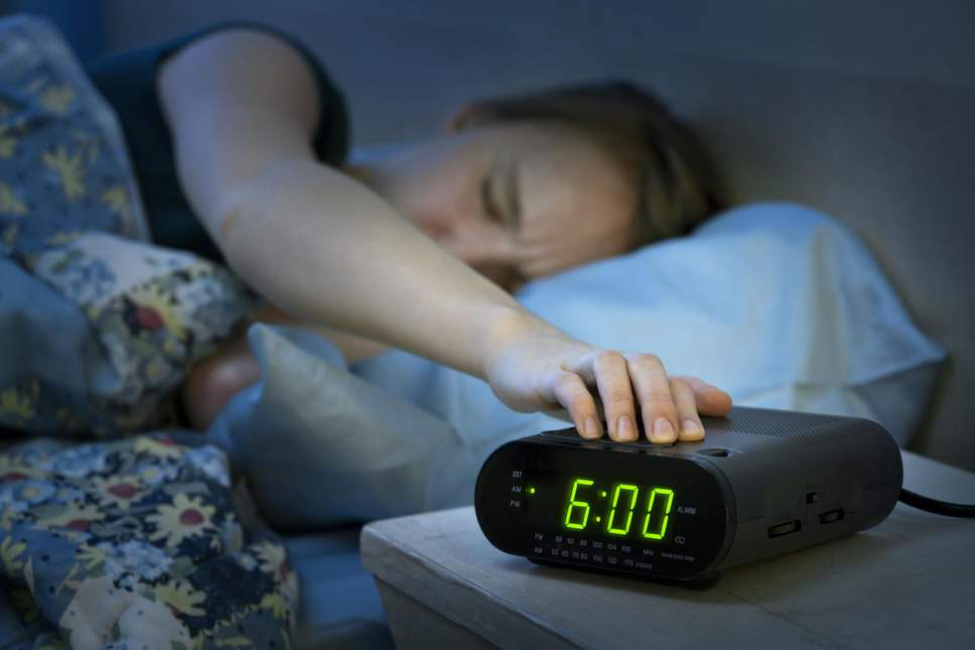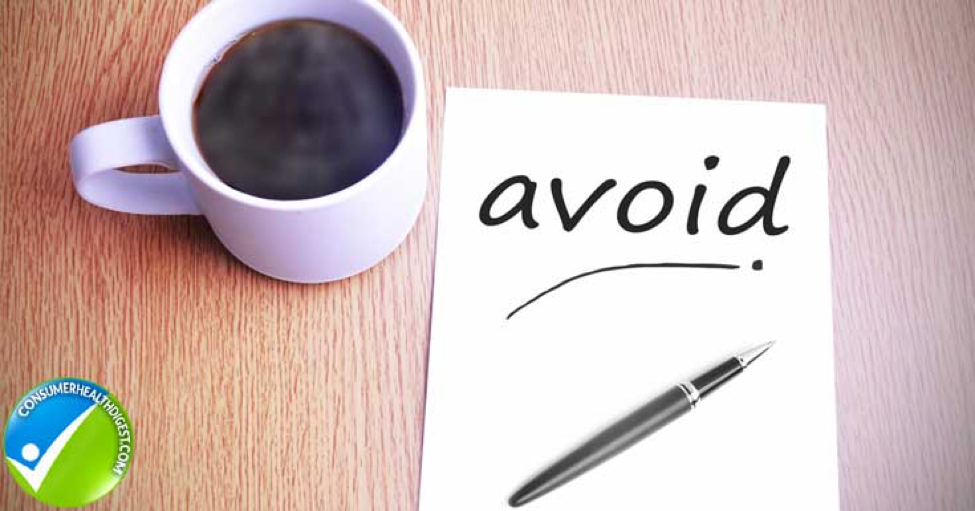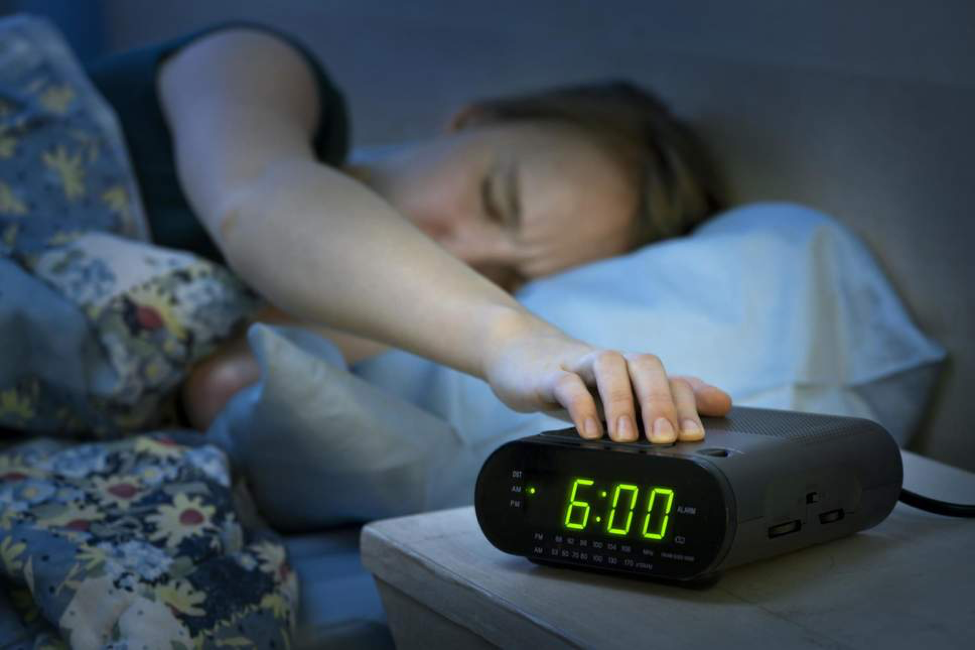How many of us are woken by an alarm in the morning and the first thing that comes into your head is “just five more minutes”? If you’re a fan of the snooze button, you know how tempting it is to continue sleeping for those extra 10 minutes. Despite how good it may feel, resetting your alarm can actually leave you more tired than when you first woke up, so it’s important to figure out ways to ditch the snooze button.
Whether you just hit it once or you continue to sleep for two hours, continually falling asleep and waking up disturbs your sleep cycle and can leave you feeling groggy the rest of the day. Although you think you might be catching a few more minutes of sleep by hitting the snooze, your sleep cycle has already been disrupted by the alarm going off. Waking up right when your alarm goes off can help you to not only feel more energized, but also help you start off your day off more relaxed. If you are one to snooze your alarm each day, read our tips below to crush this bad habit.

Change Sleep Habits
Our bodies are good at regulating sleep and wake cycles on their own. Improving sleep schedules and practicing good sleep habits can result in us feeling more rested in the morning. This means we are less likely to reach for the snooze button when the morning comes. You should go to bed and get up at the same time each day, including weekends. Go to bed early enough so that you can get seven to nine hours of sleep each night. If you are on a regular sleep cycle you may end up waking up even before your alarm goes off. A good idea is to set a realistic alarm time (the last possible time before you need to wake up, ensuring you get maximum sleep), and gradually adjust your schedule in 15-minute increments until you achieve your desired sleep and wake time. As you gain success, you’ll feel happier around sleep, which will reduce stress and make things easier in the morning.
Avoid Distractions
In addition, avoid the visual distractions, like the television, when you are trying to go to sleep. You should strive to power off all electronic devices an hour before you want to go to sleep. The blue light emitted by many electronic devices energizes our brain and makes sleeping difficult. Also, to get good sleep, avoid coffee and other caffeinated beverages before bedtime. Coffee, tea, cola, energy drinks, and chocolate all contain caffeine that may interfere with your ability to fall asleep and stay asleep. Even consuming caffeinated drinks and foods in the afternoon, or even in the morning, may affect your sleep. Instead, take a warm bath, use aromatherapy, practice meditation or light yoga, talk with a housemate, or read a book under soft lighting.

Light Exposure
Our circadian clocks are wired to wake us up in the presence of sunlight. Exposure to natural or artificial light early in the mornings can help us feel energized at the beginning of the day. This can help us get up and get moving rather than hitting the snooze. Try opening your blinds or curtains as soon as you wake up. You could even leave curtains open overnight so the natural sunlight creeps in gradually as morning comes, slowly and naturally waking you. If you don’t have a window near your bed, try flipping a light switch on immediately. If you share a bedroom with a significant other or roommate, try immediately leaving the bedroom and turning a light on in the hallway.
Manage your Alarm Clock
We all wake up a little differently. The difference between getting up with the first sound of your alarm and hitting snooze often depends on what you hear first thing in the morning. There are several extreme alarm clock sounds, including an Android alarm that forces you get up and scan items, an iPhone alarm you have to shake to turn off, and a DIY clock that shreds money when you hit snooze. If you seriously struggle with getting up, these might be great options for your alarm clock.
Set up your alarm clock on other side of room. Simply having to get up, cross the room, and turn the alarm off sometimes wakes us up enough that we do not want to go back to sleep.
Set up multiple alarm clocks. Having a variety of alarms you need to turn off can take extra time. This means we start feeling awake before the temptation to press the snooze button arises.
Adjust alarm by a few minutes. Sometimes hitting snooze is simply a comforting habit and the extra 10 minutes are gratifying. It becomes a problem when 10 minutes turn into 30 minutes or even an hour. If you’re addicted to the snooze button, adjusting your alarm 10 minutes before you need to get up allows you to indulge the habit without it having too much effect on sleep.
Schedule different alarm ringtones or songs for various days so you don’t become immune to the sound of your alarm. Place multiple alarms in different parts of your home and change their placement each night. It will be a fun scavenger hunt each morning as you race to turn them all off.

Give Yourself a Reason to Wake up
One of the ways to beat the sleep demons that urge you to sleep in is by finding motivation. If you are trying to wake up early just for the sake of it, you are likely to fail. Instead, find a compelling reason to wake up. Defining your goals and motivation for waking up early, such as being more productive, having breakfast, or going to the gym will make it much easier to actually wake up the moment you hear your alarm ring. Schedule something fun to do early in the morning. Ideally, this is some sort of exercise you can do outside in the sunshine, to further help wake you up. Raise the stakes by only allowing yourself to do this favorite activity if you wake up on time. For example, you can’t keep reading that suspenseful page-turner or see who liked your latest Facebook post, unless you woke up on time.
Wake up on the Same Time on Weekends
One of the great tips for waking up early is to actually do it on the weekends as well. We use our weekends as our time off, so it may seem pointless waking up early. However, by sleeping in, you will disrupt your consistent routine. Use the extra time you get by waking up early during weekends to do something fun. Sign up for some morning class, go out and grab coffee with your friend, or go jogging. Make sure that you actually plan your leisure activities. If you don’t, then you probably won’t have a good enough reason to wake up.
Get Treatment
If you suffer from one of the various sleep disorders, this may adversely affect your ability to get up in the morning. This may occur if you have excessive sleepiness from a restless night such as may occur with insomnia or sleep apnea. Alternatively, if you have a circadian rhythm sleep disorder such as delayed sleep phase syndrome, there may be a desire to go to bed late and sleep in. For these night owls, this will likewise have negative consequences. By seeking appropriate evaluation and treatment of any underlying sleep disorder, you may find it easier to awaken in the morning.
If you find yourself consistently struggling with getting out of bed in the morning, there may be more to the issue than your snooze button. Please feel free to contact Gateway 2 Counseling so that we may help you find the peace of mind to energetically take that bright step out of bed in the morning.
Trouble getting out of bed? We are here for you.

